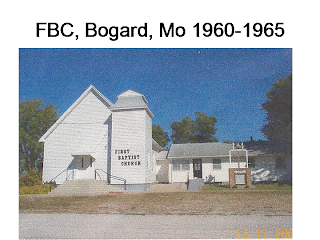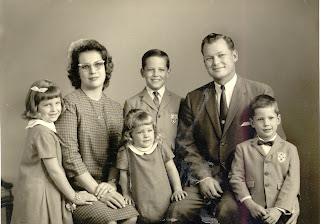What part of your
house feels most like home? In which room do your obsessive tendencies come
alive? For me, it is my library.
I used to keep most
of my books in banker’s boxes in a rental storage unit because we didn’t have
room in our house. Fortunately the storage unit was close to where we lived; I
made the trip often, flashlight in hand, looking for a particular book.
So when Cyndi and I
designed this house where we now live, having a library was one of three
personal requests I made (the other two: I wanted my own closet, and I never
wanted to mow the lawn again).
I’m writing about my
library because with the feel of fall in the air I’m converging toward the
project I’ve put off all summer - reorganizing my books.
I put it off until
the weather got too cool to work around the house outside, not that I have
worked around the house outside that much this summer. Now, the time to hesitate
is through.
I need to reorganize
is because some of the categories have outgrown their original shelves. And when
I say “reorganize my library,” I mean it like I might reorganize my garage. I
have no intention using any of the really cool new software programs for home
libraries. I don’t want to add another activity to my life that must be
constantly maintained or updated. If other people used my library I would have
to be more organized; but they don’t, so I don’t.
In preparation, I’ve
begun to thin my shelves a little, donating a few books to Friends of the
Library, and moving some upstairs to my backup shelves. Unfortunately this stage
looks random and disorganized with unrelated stacks of books
everywhere.
In fact, during a
recent Sunday School party at our house, a friend and fellow engineer asked, “Do
you organize your books? Do you have a system?” He asked because he knew I did,
but it wasn’t obvious at the time.
I organize my library
in broad themes: spiritual, writing, humor, running, cycling,
hiking/backpacking, adventure, travel, politics, history, science and math,
modern thinkers, books I’ve taught, etc. On my Bedroom shelves I keep to-read
books and certain influential books that are close to my heart. Upstairs, I
store the books I seldom use but feel I need to keep just because I need to keep
them.
The secret to having
a home library, besides physical space, is you have to read a lot. A lot. I
always have at least two books going: one on my nightstand and the other in my
black backpack in my pickup. The pickup-book idea started when the kids were
young and I was continually waiting for soccer practice, or swimming practice,
or dance rehearsal, to end. Having a book to read turned the wait into a
treat.
I’ve loved to read
since elementary school. I was the kid who tried to sneak one more chapter after
his mom told him turn off the light and go to sleep, even during the
summer.
School and college
assignments took over my reading list for several years. The first books I read
for my own enjoyment were The Chronicles of Narnia after I found a copy of The
Horse And His Boy in a study carrel in the basement stacks of, you guessed it,
the University library, and I read the entire book in one sitting instead of
finishing my thermodynamics homework.
My first book after
graduating from college was American Caesar, a biography of Douglas
McArthur. Cyndi gave it to me for Christmas in 1979.
Jim Rohn taught me to
keep a list of books I read as part of gathering wisdom, and as you might guess,
my list is in Excel and dates back to 1986. (I will send it to you if you’re
interested.)
I don’t necessarily
treat my books well. I often take the paper jacket off while reading, but that
is my only concession. Books are made to be used rather than cherished and I
freely use a highlighter or write notes and questions in the margins. Another
thing I learned from Jim Rohn was that my margin scribblings were the most
valuable thing I’ll hand down to the next generation.
I get asked often, by
people standing in my library, “Have you read all these?” It’s a fair question.
I don’t expect other people to read as much as I do; we each have our own
compulsive hobbies.
My answer is, “Yes,
at least 90% of them.” Again, not to be snobbish, but I seldom buy books I don’t
intend to read. On occasion a book won’t capture my attention and I’ll put in on
the shelf without finishing, but that is rare.
Cyndi and I used to
go to dinner parties at a friend’s house and I was always directed to his
extensive library. Only all the books were literary classics and all the covers
matched, telling me he bought them as a set. And none of the bindings had
creases, telling me they were for show and were never read. He was a gracious
and friendly host and I liked him, but he wasn’t the sort of book guy I am. Mine
don’t match, and there are lots of creases.
So back to my
original design criteria for our house. I wanted no yard to mow because I was
tired of keeping a lawn that no one played in, and I wanted my own closet
because the dividing line in a shared closed moves. Both of those were about
simplifying life.
But having a library
is not simplifying, it’s enriching. I simply love books, and reading books has
made me a better man, and having my own library makes me
happy.
How about
you?
“I
run in the path of Your commands, for You have set my heart free.” Psalm
119:32
-------------------------------------------------------------------------------------------------------------------------------------------------------------------------------------------------------------------------
Thanks
Berry Simpson
Find me at
www.berrysimpson.com, or
www.twitter.com/berrysimpson, or
http://www.facebook.com/berry.simpson
Hello, Readers, from Juanita. Berry is one of my son's friends. They have been on several hiking trips together. I've been reading his blog for awhile and wanted to share with you his love of reading. I'd love to hear comments. Hope you will take the time to leave one.
“I
run in the path of your commands, for you have set my heart free.” Psalm
119:32



















